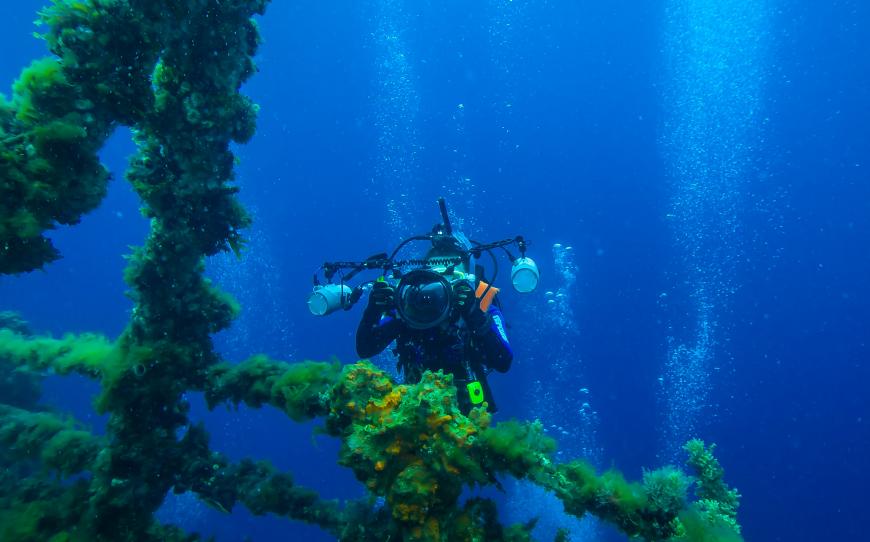Ph.D., Doctoral Degree Program in Marine Biotechnology: Introduction, Admission, Registration, Eligibility, Duration, Fees, Syllabus 2024

Introduction:
Embarking on a Ph.D. journey in Marine Biotechnology immerses scholars into the fascinating realm of marine organisms and their potential applications in biotechnology. This interdisciplinary field blends biology, chemistry, and engineering to harness the vast resources of the ocean for scientific exploration and innovation.
Admission Process:
- Submit an online application including academic transcripts, statement of purpose, and letters of recommendation.
- Participate in interviews with faculty members to discuss research interests and alignment with program objectives.
- Demonstrate proficiency in relevant academic areas such as biology, chemistry, and biotechnology through standardized test scores or prior coursework.
- Highlight research experience and publications related to marine science or biotechnology.
- Secure funding through fellowships, grants, or assistantships to support doctoral studies.
Eligibility:
- Possession of a master's degree in a relevant field such as biology, marine science, biotechnology, or related disciplines.
- Strong academic background with a minimum GPA requirement.
- Demonstrated research experience through publications, presentations, or laboratory work.
- Proficiency in scientific writing and communication skills.
- Passion for marine biology and biotechnology, with a commitment to advancing scientific knowledge and innovation.
- Fluency in English, with proficiency exams required for non-native speakers.
- Letters of recommendation from academic or professional mentors highlighting research potential and academic achievements.
Completion Time:
The completion time for a Ph.D. in Marine Biotechnology typically ranges from 3 to 5 years, depending on factors such as research complexity, dissertation development, and publication requirements.
Career Opportunities:
- Research Scientist in academic institutions, government agencies, or biotechnology companies.
- Bioprocess Engineer specializing in marine-derived products and technologies.
- Marine Biotechnologist developing novel drugs, biomaterials, or renewable energy sources.
- Environmental Consultant advising on sustainable practices and conservation efforts.
- Regulatory Affairs Specialist ensuring compliance with laws and regulations governing marine biotechnology.
- Entrepreneur launching startups focused on marine biotechnology innovations.
- Educator or Science Communicator inspiring future generations through teaching and outreach activities.
Syllabus:
- Marine Biology and Ecology
- Bioprospecting and Bioactive Compounds from Marine Organisms
- Biotechnological Techniques in Marine Research
- Molecular Biology and Genetic Engineering
- Bioinformatics and Computational Biology
- Marine Bioprocessing and Bioremediation
- Advanced Topics in Marine Biotechnology
Internship Opportunities:
- Collaborate with marine research institutes or biotechnology companies on applied research projects.
- Participate in field expeditions to coastal regions or marine ecosystems to collect samples and conduct experiments.
- Engage in internships with government agencies focused on marine conservation and resource management.
- Work with biotech startups developing innovative products derived from marine organisms.
- Gain experience in regulatory affairs and quality control within the marine biotechnology industry.
Scholarships and Grants:
- National Science Foundation (NSF) grants for research in marine biology and biotechnology.
- Institutional fellowships and assistantships offered by universities.
- Marine-focused foundations and non-profit organizations offering research grants.
- Industry-sponsored scholarships and internships in marine biotechnology.
- International funding opportunities for collaborative research projects in marine science and biotechnology.
- Diversity scholarships aimed at underrepresented minority groups in STEM fields.
- Government grants for innovative research initiatives addressing global challenges in marine biotechnology.
FAQs:
Can I pursue a Ph.D. in Marine Biotechnology with a background in a different scientific discipline?
Yes, many programs welcome applicants from diverse academic backgrounds, as long as they demonstrate relevant skills and passion for marine science and biotechnology.
Are there opportunities for international students in this program?
Absolutely! Many Ph.D. programs in Marine Biotechnology actively recruit international students and offer support services tailored to their needs.
What types of research projects are available in Marine Biotechnology?
Research projects may range from exploring the genetic diversity of marine organisms to developing biotechnological applications such as pharmaceuticals, biomaterials, and biofuels.
How can I prepare for a Ph.D. in Marine Biotechnology?
Prioritize gaining research experience, honing your scientific skills, and networking with professionals in the field through internships, conferences, and academic collaborations.
What is the outlook for job prospects in Marine Biotechnology?
The field of Marine Biotechnology is rapidly expanding, with growing demand for skilled professionals to address global challenges such as sustainable food production, environmental conservation, and human health.





